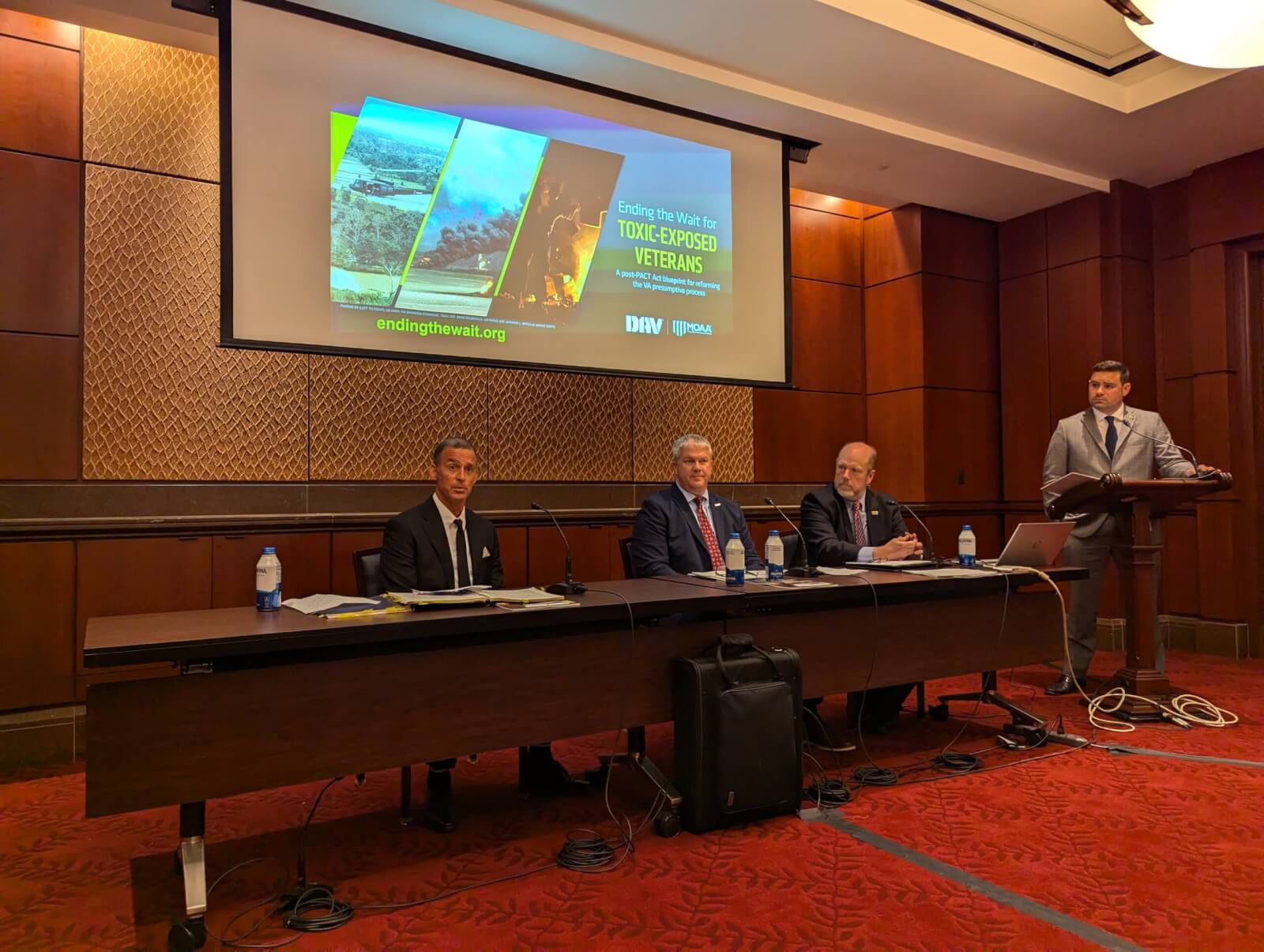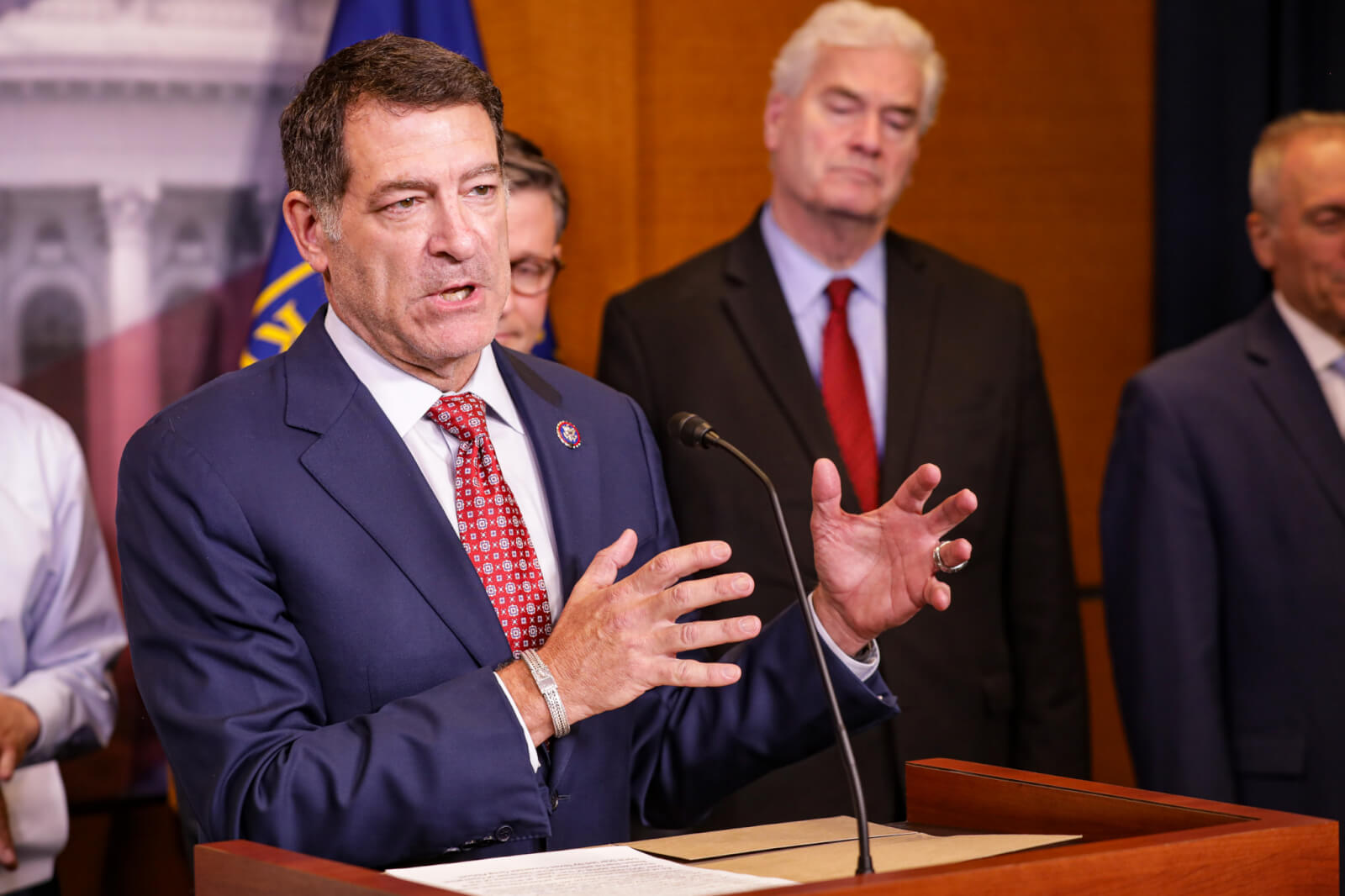On a summer night in 2003, Mark Jackson, a special agent for Army Criminal Investigation Division, arrived at Karshi-Khanabad Air Base in Uzbekistan for his first combat deployment. Two of his fellow soldiers met him at the terminal.
“The very first thing that they said to me was, ‘I sure hope you’re done having kids,’” he remembered.
Karshi-Khanabad, also known as K2, was riddled with remnants of chemical weapons and radiation from its time as a Soviet military installation. Over the last 25 years, thousands of soldiers who served at K2 have developed health issues at alarming rates, many of which are not considered presumptive conditions covered under the PACT Act.
Jackson, now the advocacy director for the Stronghold Freedom Foundation, says that until recently, the repercussions of the contamination at K2 had slipped through the cracks.
“We had been completely left out of legislation to the point where Uzbekistan wasn’t recognized as a place where we’d even deployed soldiers,” he said.

Rep. Mark Green, an Army veteran who deployed to K2, has made health coverage for K2 veterans a key piece of his legislative agenda since his election in 2018. He recently introduced the K2 Veterans Total Coverage Act to this session of Congress, establishing additional presumption of service connections for certain diseases that occur in veterans of the base.
“Veterans who deployed in the early years of the War on Terror to the K2 Air Base were knowingly exposed to toxins, including uranium, and have yet to receive a full presumption of service connection for their sicknesses and cancer,” said Green, himself a two-time cancer survivor who believes his illness was due to toxic exposure during his service. “This cannot stand, and it’s why the bipartisan K2 Veterans Total Coverage Act is so critical.”
Jackson, who experienced multiple unexplained health conditions after his time at K2, has seen this coverage loophole firsthand. Thyroid disease gave him a 10% disability rating as a presumptive condition under the PACT Act, and he expects his recent diagnosis of prostate cancer to be covered as well. But his GI issues, necrosis in his elbow and testicle, and osteoporosis are not.
“You don’t get osteoporosis in your 30s by accident,” he said. “I’m one of thousands that went to this base that have similar maladies.”
According to Jackson, everyone at K2 knew the base was toxic. There were signs marking off radioactive areas, fenced with barbed wire. Other signs noted chemical weapons.
“If you were to dig down about a meter, that hole would fill with black goo,” said Jackson. “There was a pond that sat outside of the base, and we called it Skittles Pond, because it changed colors every day. Literally the colors of the rainbow.”
For mitigation, the ground was covered by large rocks.
“People knew,” Jackson said. “The signs were there, it was talked about, but absolutely nothing was done about it.”

Jackson feels the situation in Congress is similar to the status quo on the base.
“Everyone knows what happened, and nobody’s willing to to acknowledge it,” he said. While he appreciates Green’s repeated attempts to draw attention to the cause, “I hold no faith in these elected officials to do what is the obvious right thing. I think the bill is going to die the same way I’m going to die.”
He still believes Green’s introduction of the legislation is important, if only to get elected officials on the record saying ‘no.’
“Abandoning veterans during their greatest time of need breaks the solemn promise our country stands on: ‘You serve, and we’ll take care of you when you return home’,” said Green.
Jackson believes sacrifice is another part of his service.
“When I when I took the oath to uphold the Constitution, that is up to and including my own death,” he said. “So this is no different than being shot. It’s just the bullet that hit me is really slow.”
Read comments
























